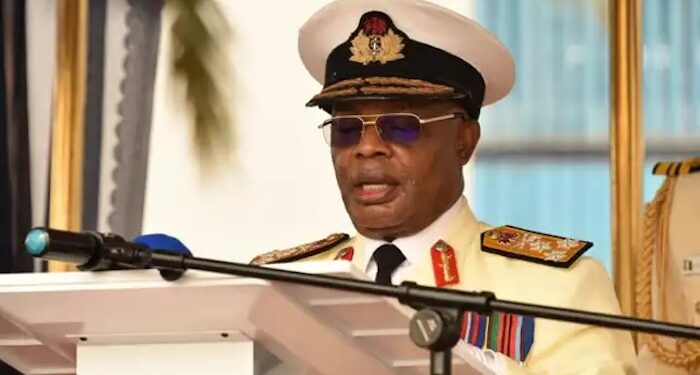A Federal High Court in Abuja has scheduled a hearing for April 10, 2025, on a lawsuit seeking to remove Vice Admiral Ibok-Ete Ekwe Ibas (rtd) as the Sole Administrator of Rivers State. The suit was filed by Abuja-based legal practitioner, Mr. Johnmary Jideobi, who argues that Ibas’s appointment is unconstitutional.
Legal Grounds for the Suit
The suit, filed under case number FHC/ABJ/CS/572/2025, challenges President Bola Tinubu’s appointment of Ibas, claiming it violates the Nigerian Constitution. According to Jideobi, the appointment of a sole administrator to run a state is unconstitutional and should be declared void.
Jideobi’s suit asserts that while the President has constitutional powers to declare a state of emergency, he lacks the authority to suspend elected officials such as the Governor and Deputy Governor of a state. The lawsuit follows President Tinubu’s recent decision to declare a state of emergency in Rivers State and suspend Governor Siminalayi Fubara, his deputy, and the state’s House of Assembly members for six months, citing security concerns. Following the declaration, Ibas was appointed to oversee the state’s affairs until peace is restored.
The plaintiff claims the President’s actions could set a dangerous precedent, potentially leading to the removal of elected governors and deputy governors at will, which he argues could lead to political instability and the erosion of democratic principles.
Demands in the Suit
Jideobi has requested that the court declare all actions taken by Ibas as Sole Administrator as unconstitutional and void. He also seeks an injunction to prevent the President from tampering with the tenure of elected officials in Rivers State and other states across Nigeria. This demand is rooted in a broader concern for maintaining the integrity and supremacy of Nigeria’s Constitution.
Ibas’s Legislative Appeal
On the other hand, Vice Admiral Ibas has been actively seeking legislative support to implement the programs of his administration. He emphasized the importance of continued federal backing to secure resources for critical infrastructure projects and economic development in Rivers State.
During a visit by the Senate Committee on Works, led by Senator Barinada Mpigi, Ibas highlighted several programs, including those aimed at boosting healthcare, education, and infrastructure. He particularly stressed the need for investments in agriculture, technology, and job creation.
Ibas acknowledged the challenges facing Rivers State, especially in maintaining vital infrastructure like roads, bridges, and energy facilities. He called on the National Assembly to help secure the necessary resources to overcome these challenges and support the state’s development goals.
Since assuming office on March 20, 2025, Ibas has focused on restoring peace and stability in the state, working closely with local stakeholders and government officials to build a stable environment conducive to development.
The Senate’s Role in Supporting Ibas
During the visit to Port Harcourt, the Senate Committee on Works expressed its support for ongoing federal projects in the state, such as the Bodo-Bonny link road and the Coastal road project. These projects, which are vital for economic growth and regional connectivity, are 40% complete and are expected to benefit the state once finished.
Senator Mpigi acknowledged the impact of the state of emergency and emphasized the importance of ensuring that critical infrastructure projects continue to receive attention. He encouraged Ibas to ensure the protection of both infrastructure and the lives of Rivers State residents during this period of transition.
The legal challenge against Ibas’s appointment as Sole Administrator adds complexity to an already delicate situation in Rivers State. As the case progresses, the outcome will have significant implications for the relationship between the judiciary, the executive, and the political leadership of Nigeria’s states. Meanwhile, Ibas remains focused on securing legislative support to ensure the continued development and stability of Rivers State during this challenging period. The April 10 hearing will be pivotal in determining whether his administration will continue or if the court will rule in favor of the plaintiff’s arguments on constitutional grounds.


